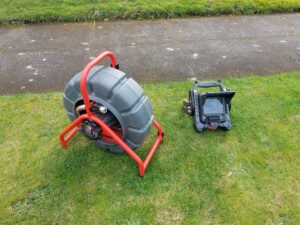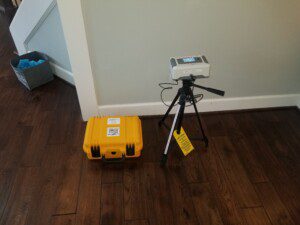
Because the risk of inheriting costly repairs and health and safety issues when buying a home is relatively high, you should have a home inspector inspect any property that you are looking to buy. When there is high demand and low inventory in the housing market, a common trend is to forgo the home inspection in order to present a more competitive offer for the purchase of property, but this is very risky. Buying a property “as is” without inspections can often open home buyers up to unexpected repairs and health hazards.
There are also other inspection services that home buyers should consider that are not part of a normal general home inspection. Many home inspectors offer ancillary services that can be added to the general home inspection for an additional fee. The most common ancillary services offered by a home inspector include sewer scopes, radon testing, oil tank sweeps, and mold testing. These types of specialized inspections help to find problems that may not necessarily be obvious to the naked eye and require the use of special tools to detect any problems.

Here are the top 5 reasons why shouldn’t you use an environmental contractor for sewer scopes, radon testing, oil tank sweeps, and mold testing:
5 – Inspecting multiple systems in a house and then immediately offering very expensive repairs may be unethical.
Licensed home inspectors in Oregon and Washington must follow a strict code of ethics. One important ethical code is that home inspectors cannot work on any home that they inspect within 1 year. This is to ensure that home inspectors will not exaggerate issues in order to get a contract for repairs. Any home inspector that violates this rule is subject to penalties and revocation of their license. Environmental Contractors do not have similar ethical restraints, so they may exaggerate problems in order to take advantage of home buyers and sellers during a very stressful time.
4- State law requires anyone who inspects more than one component in a home to be home inspectors.
Any person who inspects more than one component in a home should be a licensed home inspector. This law exists in order to avoid contractors to act as an inspectors in order to drum up business. Inspectors make their money conducting inspections and will recommend a particular type of specialist when an issue is discovered. That’s when specialist contractors can step in and further evaluate the problem and determine what repairs are needed. Also, having a home inspector on your side can give you the opportunity to ask questions about a proposed repair and get answers from a 3rd party, independent source. Some jurisdictions are not currently enforcing the law that says you must be a licensed home inspector if you inspect more than one building component, but that does not change the fact that the law is in place.
3- Contractors have an incentive to make small problems bigger than they are in order to sell big repairs.
Although many contractors are honest and will not try to sell unneeded repairs, it is sad but true that many other contractors may exaggerate issues in order to sell big repairs and increase their profit. Having a home inspector conduct inspection of your house systems can help to put into perspective the type of work that is needed. Trying to figure out if a contractor is overselling a project can be difficult to do for most homeowners. There are many cases on record when contractors have committed fraud and recommended bigger repairs than what was needed.
2 – Many environmental contractors have low-level techs conducting “inspections”
Since many environmental contractors offer discounted prices for sewer scopes, radon testing, oil tank sweeps, and mold testing, they often hire inexperienced technicians that are paid a lower wage to conduct their “inspections”. These lower-paid employees are often not motivated to put in extra efforts that may be needed for a thorough inspection. Also in some cases, bonuses are offered to technicians if they can sell a repair regardless of if it is really needed or not. It is a better choice to hire a licensed home inspector for these services that have received training in these areas and who know how to properly use specialized tools.
1 – Conflict of interest
The number one reason why shouldn’t you use an environmental contractor for sewer scopes, radon testing, oil tank sweeps, and mold testing is that it is a conflict of interest. Ultimately, all of these reasons highlight the fact that environmental contractors conducting “bundled inspections” for real estate purchases is a conflict of interest. Having a contractor that makes money on repairs determine whether a repair is needed can sometimes be a crapshoot. Many contractors are honest hard working people that conduct themselves professionally and do right by their customers, but there are some bad eggs out there that are apt to take advantage of unsuspecting homeowners. The whole reason the home inspections industry was created was to give people to be informed by a 3rd party representative that does not have a vested interest in repairs or contracts for work. In order to reduce the risk of being taken advantage of by an unscrupulous environmental contractor, hire a home inspector for all ancillary inspections during a real estate transaction.
When deciding on whether you should save a few hundred dollars on ancillary services during a real estate transaction, consider the extra risk you may be taking on if you do. Home inspectors are in the business of observing and reporting from an objective perspective. Home inspectors get paid to inspect and that’s it. Home inspectors are more concerned with accurately reporting defects and issues in a home rather than trying to sell unnecessary repairs.
Check out the video below to learn more about a sewer line repair deception scandal in Colorado
